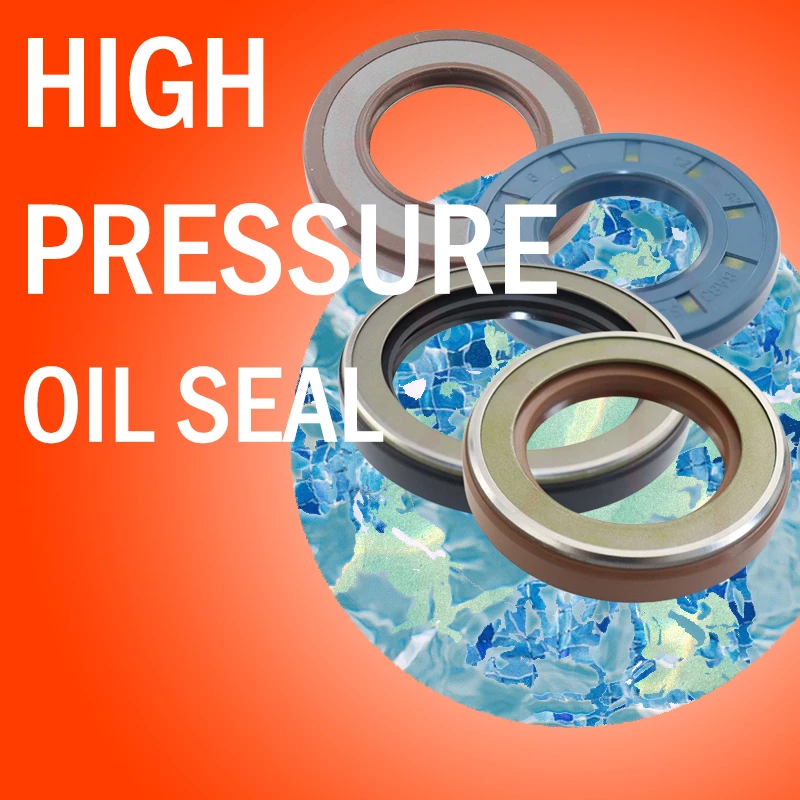Nov . 10, 2024 21:11 Back to list
High Performance Seals for Reliable Operation of High Pressure Pumps
High Pressure Pump Seal An Essential Component for Efficiency and Reliability
In various industrial applications, high pressure pumps play a crucial role in transporting fluids from one point to another, ensuring operational efficiency and reliability. However, maintaining the integrity and efficiency of these pumps hinges significantly on the performance of the pump seals. High pressure pump seals also play a pivotal role in preventing leaks, which can lead to hazardous conditions, environmental concerns, and increased operational costs.
The Importance of Seals in High Pressure Pumps
Pump seals serve as a barrier that protects the external environment from the fluid contained within the pump. In high-pressure applications, where pressures can exceed thousands of psi, the seals are subjected to significant mechanical stress and friction. This is why selecting the right seal material and design is critical for maintaining operational integrity.
Leak Prevention One of the primary functions of pump seals is to prevent leaks. In high-pressure environments, even a minor seal failure can result in fluid leakage, leading to loss of product, safety hazards, and increased maintenance costs. High-quality seals reduce the risk of leaks, ensuring consistent performance and reducing environmental impact.
Operational Efficiency A well-functioning seal contributes to the overall efficiency of the pump. If a seal fails or becomes inefficient, the pump may have to work harder, leading to increased energy consumption and costs. In contrast, a reliable seal improves the pump's performance by minimizing friction and energy loss.
Types of High Pressure Pump Seals
There are several types of seals used in high pressure pumps, each designed for specific applications and fluid types
.1. Mechanical Seals These are used widely in industrial applications due to their ability to handle high pressures and temperatures. Mechanical seals consist of two main components a rotating face and a stationary face. When pressed together, these faces create a barrier that prevents fluid from leaking. Mechanical seals are often made from materials like ceramic, tungsten carbide, or carbon, providing excellent durability and resistance to wear.
2. Lip Seals Often used in rotary applications, lip seals have a lip that fits snugly against the shaft or housing, creating a seal that prevents fluid escape. They are typically made from elastomers and are best suited for lower pressure applications. However, advancements in material technology have improved their performance in certain high-pressure scenarios.
high pressure pump seal

3. Diaphragm Seals In applications where contamination is a concern, diaphragm seals can be extremely effective. They use a flexible membrane to separate the pump fluid from the environment, thereby preventing leaks and offering protection against various aggressive chemicals.
4. O-Ring Seals O-rings are simple, yet highly effective seals that offer versatility across different applications. While they are generally used in moderate pressure applications, high-grade materials and precise design can make them suitable for certain high-pressure conditions.
Factors Influencing Seal Selection
When choosing a seal for high-pressure applications, several factors must be taken into consideration
- Fluid Compatibility The seal material must be compatible with the fluid being pumped. Chemical reactions between the fluid and seal material can compromise integrity, leading to premature failure.
- Temperature Range High-pressure applications often involve extreme temperatures. The seal material must be able to withstand the operational temperatures without losing its ability to seal properly.
- Pressure Rating Each seal has a specific pressure rating that determines its suitability for various applications. It’s essential to assess the maximum operating pressure of the pump to select an appropriate seal.
- Installation Conditions The ease of installation and the conditions under which the seal will be installed also play a crucial role in selecting the right seal. Proper installation is key to the performance of any sealing system.
Conclusion
High pressure pump seals are critical components that ensure the efficient and reliable operation of pumps across various industrial applications. By preventing leaks and minimizing energy losses, these seals play a vital role in enhancing the overall performance of high-pressure systems. Understanding the types of seals available and the factors influencing their selection is essential for industries that rely on high pressure pumps, enabling them to achieve optimal efficiency and safety in their operations.
-
Unlocking the Potential of Hydraulic Systems with Essential Sealing Solutions
NewsAug.06,2025
-
Unleash the Power of Your Hydraulic Systems with Our Premium Seal Kits
NewsAug.06,2025
-
Specialized Hydraulic Seal Kits for Breakers, Pistons, and Presses
NewsAug.06,2025
-
Revitalize Hydraulic Systems with Premium Repair and Seal Kits
NewsAug.06,2025
-
Fortify Your Cylinders with Premium Sealing Solutions
NewsAug.06,2025
-
Elevate Hydraulic System Reliability with Specialized Seal Kits
NewsAug.06,2025
-
TCN Oil Seal Metal Ring Reinforcement for Heavy Machinery
NewsJul.25,2025
Products categories
















